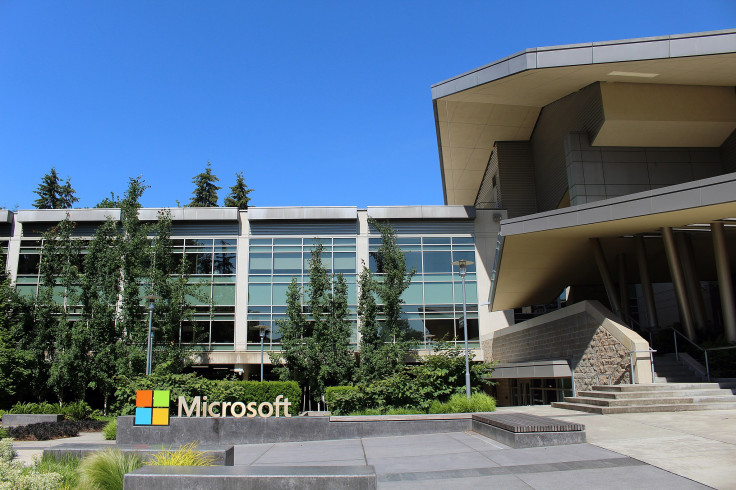Microsoft's custom ARM chips set to lock horns with Apple's M-series chips
Apple's Mac lineup saw notable improvements with the company's transition to its custom Silicon.

Microsoft is reportedly working on custom ARM chipsets to give Apple's M-series processors a run for their money. Apparently, this is the company's attempt to compete against Apple's power-packed M-series of chipsets.
Apple's decision to make its custom Silicon turned out to be favorable for the company's Mac lineup. Apple Macs have seen notable improvements after the company transitioned from Intel chips to its custom Silicon back in 2020.
Microsoft aiming to challenge Apple Silicon with custom ARM chips pic.twitter.com/qv9dAHH4aq
— Apple Talk (@AppleTalkAT) May 1, 2023
The highly efficient M-series of chipsets delivers better performance than most of the big contenders. A new report by Windows Latest suggests the Redmond-based tech giant Microsoft wants to make its foray into the custom silicon business as well. According to the report, Microsoft is already working on its own custom ARM chips.
Microsoft prepping to challenge Apple's M-series chips
The report claims Microsoft will be optimising its highly anticipated Windows 12 OS to work alongside its custom ARM chips for unparalleled efficiency. In line with this, the company posted a myriad of job listings that sheds light on its plans. The job listing includes Principal System on Chip Silicon Architect, Sr Silicon Power Integrity CAD Mgr, Principal Design Engineer, and Senior Physical Design Verification Engineer.
The main element of the company's new chips will be performance and efficiency, as per the listings. These listings, which were posted at the end of April, are placed in groups under the company's "Microsoft Silicon Team." Furthermore, the postings' description implies Microsoft is looking for employees who will be at the "leading edge of computing."
Also, these employees will be working with a wide range of "cross-functional groups to deliver high-performance and innovative silicon SOC." The report claims Microsoft wants to leave no stone unturned in a bid to better compete against its Cupertino-based rival, Apple, with its custom AR processors.
I can see a lot of potential with Microsoft building their own custom silicon. Particularly to supercharge their Surface line of computers.
— Markets & Mayhem (@Mayhem4Markets) May 2, 2023
Microsoft is working on new ARM chips with partners and its in-house “Microsoft Silicon team” to rival Apple’s M chips. - Windows Latest pic.twitter.com/ioATLzQbTd
The word on the street is that Microsoft is also working on an AI (artificial intelligence) chip that will power OpenAI's ChatGPT chatbot. However, the company is still mum on its plan to unveil a chipset for the widely-popular AI tool. Nonetheless, Microsoft might spare no effort to ensure its upcoming chipsets can compete against leading chip manufacturers, as well as Apple's new chips.
Notably, Apple's chips are designed to work with the software. MacBooks deliver superior performance, coupled with long battery life since macOS and the M-series chips are optimised. Aside from this, it gives users more control over the hardware when it comes to power efficiency and performance. Apple's M3 chip will be reportedly fabricated on TSMC's 3nm architecture.
Windows 12 OS: Everything we know so far
The report also claims Microsoft is developing Windows 12 OS with optimisations designed for its custom silicon. Interestingly, an earlier report revealed that the company is planning to deepen AI integration for its next-generation operating system. Past leaks have shown that the Windows 12 operating system could arrive next year.
Furthermore, the Windows 11 successor is expected to boast a myriad of awe-inspiring features that could use Microsoft's custom chips to good advantage. The next-gen OS will probably use the custom ARM chip to offer AI-centric features. However, it is worth noting that Microsoft has neither confirmed nor denied these speculations yet.
Windows 12 konsept görüntüleri, yeni tasarımı ve özelleştirme seçeneklerini vurguluyor... pic.twitter.com/D0zcC7sRQd
— Technopat (@TechnopatNet) May 2, 2023
In the meantime, the company will continue to roll out updates to Windows 11 OS. In fact, the existing operating system might even get some new features to ensure users do not feel the OS is stale. As part of this strategy, Microsoft released Windows 11 version 22H2 in September with a new features such as new touch gestures and Start menu folders.
Currently, Apple is at the forefront as far as developing custom chips is concerned. In fact, the Cupertino-based tech firm is prepping to launch 3nm M3 chips for MacBook Air in the second half of 2023, according to a DigiTimes report. The M3 chip could offer major performance gains, as well as enhanced battery life.
© Copyright IBTimes 2025. All rights reserved.






















